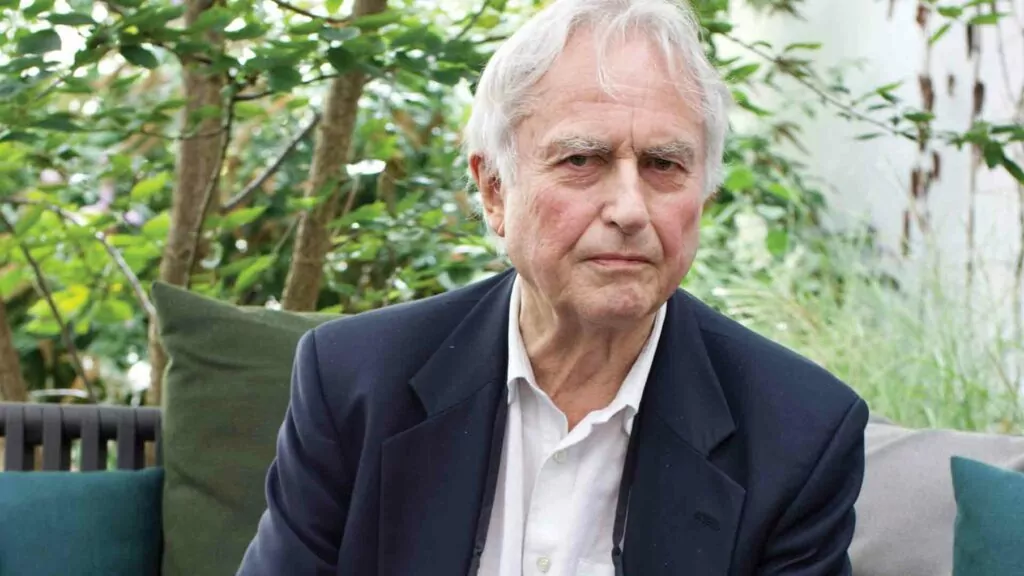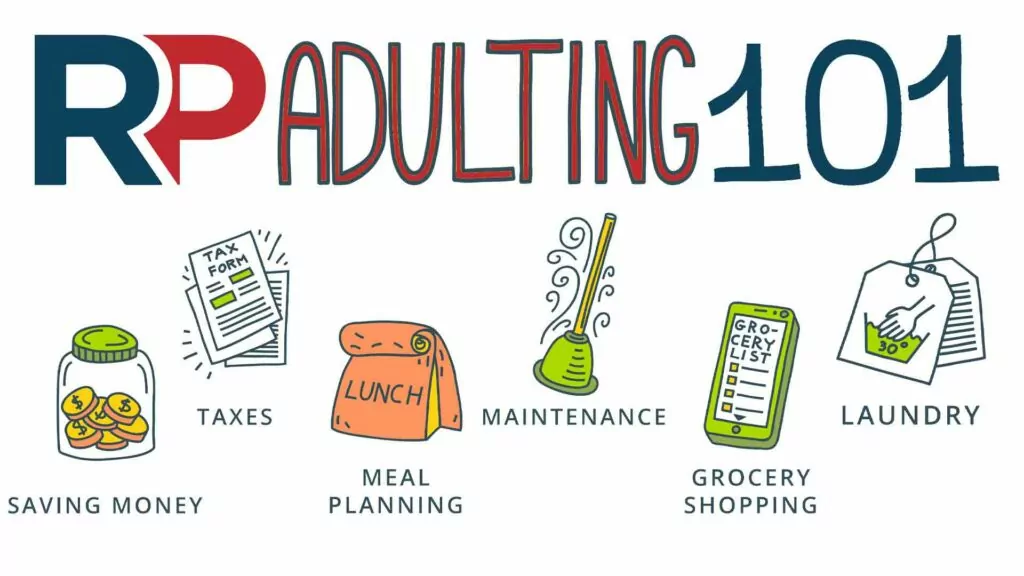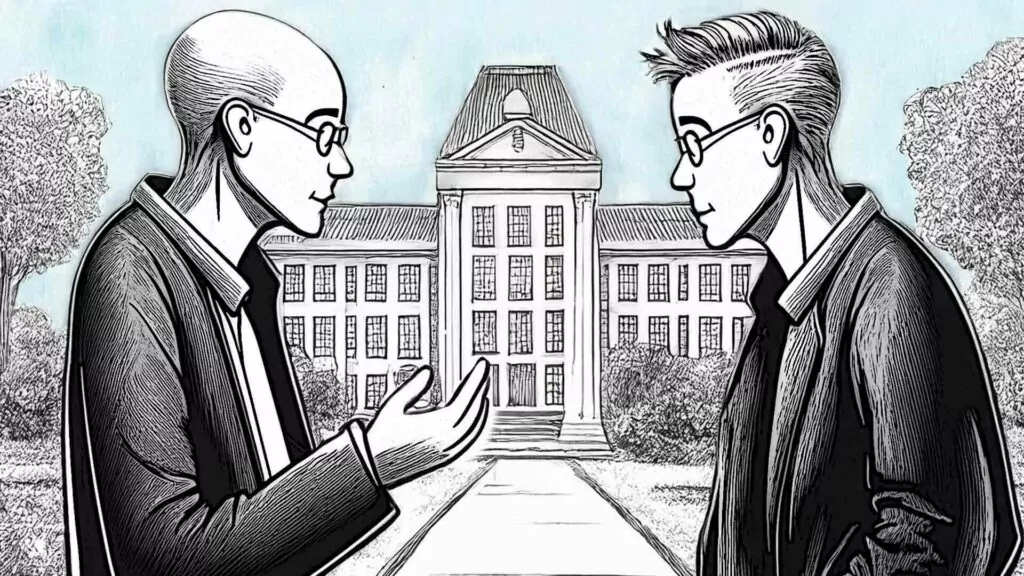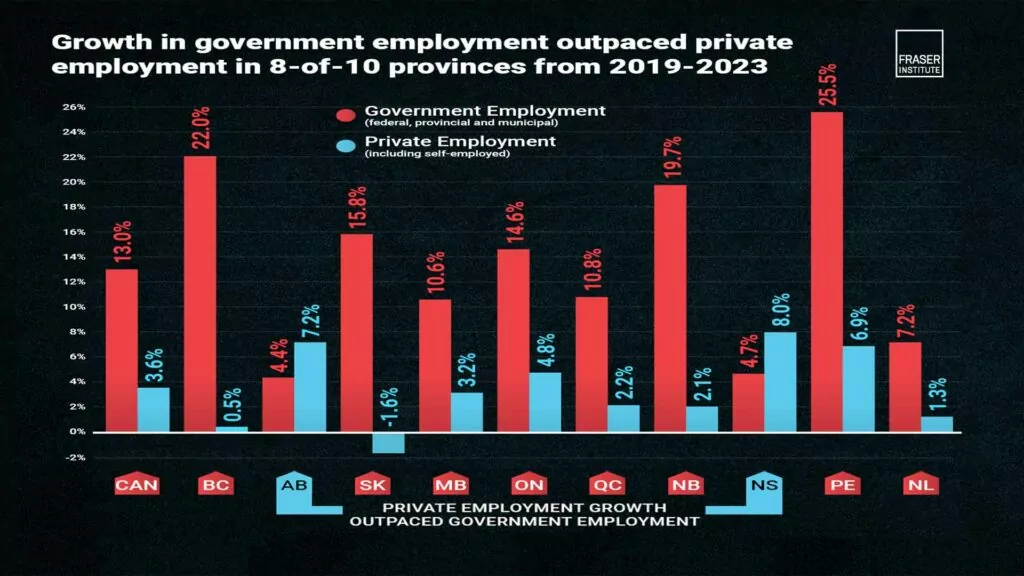The quickening
"The great mass of this bleary-eyed world can see nothing of the ineffable glories of Immanuel. He stands before them without form or comeliness, a root out of dry ground, rejected by the vain and despised by the proud. Only where the Spirit has touched the eye with eye-salve, quickened the heart with divine life, and educated the soul to a heavenly taste, only there is He understood.”
– Charles Spurgeon
****
Solving vexations, conundrums, predicaments, heartaches, questions, challenges, dilemmas, mysteries and, in short, anything, is hopeless and impossible unless there is a hunger and a thirst within a spirit for righteousness. This hunger and thirst is not fathered by the human heart. This hunger and thirst is created by God.
****
The bird feeder area was literally teeming with birds. It had been a long, hard winter and food was difficult to find; the feeding station provided an oasis. Tiffany stood by the windowed patio door and smiled at the little bodies strutting about while pecking at the seed. Sparrows, nuthatches, juncos, and robins mingled freely on the lawn. What pretty individual names they bore. Adam had chosen well. Of course, he had not spoken English. Probably the many different species of birds had been given individual names over time. She smiled to herself and considered that although her generic name was Woman, because she had been taken out of Man, her personal and unique name was Tiffany.
Her mother had not really given her a reason as to why she had been named Tiffany. "I don't know, child," she had said, "I think I just liked the sound of Tiffany. Or maybe I read it somewhere. I just don't know."
Several sparrows burst out into chirping. Were they alarmed by some hawk flying over? She searched out the sky, pressing her nose against the window pane. Or were the little birds perhaps arguing about why their name was sparrow and not flitterwing? There had been various times in her own life, times during which she had pondered the significance of her name, stages of discussing with her parents as to why they had not named her Johanna, after her paternal grandmother, or Helen, after her maternal grandmother. It had a curious dictionary meaning – the name Tiffany. It meant sheer fabric. Eventually, when she was a teenager, rapidly approaching adulthood, she was reconciled to the rationale that her father held out to her.
“It doesn't really matter, does it, Tiffany? When people hear your name, they should automatically think of what you do, of what you stand for, and how you speak. After all, your name ought to signify the reputation you give it. So be careful about what you say and do. That's what it comes down to.”
Tiffany smiled at her reflection before moving back from the window. She remembered Dad's words very clearly. And she also remembered Psalm 139.
“For You formed my inward parts; You knitted me together in my mother's womb. I praise You, for I am fearfully and wonderfully made. Wonderful are Your works; my soul knows it very well. My frame was not hidden from You, when I was being made in secret, intricately woven in the depths of the earth.”
Surely a fabric, a sheer fabric, such as her name denoted, was precious to think on as being woven together by God. It was an intimate thought, between God and herself, and it was a thought that made her feel special and whole.
****
She and Evan had been careful when they had named their children. Their oldest, a boy, had been baptized John, meaning “God is gracious;” the second, Noah, had “rest and repose” affixed to his person. They had frequently spoken to both boys about the meaning of their names. Both John and Noah had been fascinated. Their names had cultivated their identities. Like a gift that could be unwrapped over and again, the truth was that the bestowal of a good name was better than giving a child riches.
Their third child, a daughter, had been a wee, tiny thing when she was born. A total surprise, born a good seven years after Noah, this baby had been considered an added sweetness by Evan and herself. She was an extra joy, which was why the name they had chosen for her was Joy. She was now married and had a family of her own.
Tiffany sighed. Time went by fast, inexplicably fast.
Leaving her place by the window, Tiffany walked through the dining room to the kitchen. The counter was still cluttered with washed breakfast dishes which she had not, as yet, put away. Absently, she took her place in front of the sink, picked up a dish rag and began wiping a spot that needed no cleaning at all. Painfully aware of what made her so reflective and philosophical, she fought the desire to put on her coat, to escape outside and take the car for a long drive out into the country. If she did that, she would not have to wait for the doctor's phone call; if she did that, she would not have to hear the results of her recent lab tests. Even as she doggedly continued to wipe the counter, she fought a rising compulsion to leave. There was no appetite in her at all to digest the knowledge that the doctor might impart. A terrible dread encompassed her that after his phone call this morning nothing would ever be the same again.
A fly landed on the counter and she swatted at it with her dish rag. In the middle of her third swat, the phone rang. Startled, Tiffany froze for a moment. She waited for the fourth ring before she finally walked back through the open kitchen door to the diningroom. The phone, large and black, stood on the table. Hesitantly, she picked up the receiver.
"Hello."
"Hi, Mom."
"Joy?"
"Yup, it's me. Your one and only daughter. How are you, Mom?"
Tiffany's left hand fiddled with the telephone cord. Then she took a deep breath before she answered, "Oh, I'm fine, sweetheart." There was no need, no need at all, she thought, to worry this child, or the others, when there was really nothing to tell. Not yet, anyway.
"Listen, Mom, Rob and I thought we might drive up for a visit this weekend, maybe from Friday night until Monday morning. That is, if a visit suits you and Dad." Joy's voice still sounded just like it had when she was a little girl.
"Sure, honey. That's fine. We'll look forward to that. I'll have Dad take the playpen out of the shed and the crib's still up in the spare bedroom."
"Thanks, Mom. I was hoping it would work out. For some reason, I've missed seeing you guys so much the last few days. Also, and I admit it freely, I really, really want to see how the addition to the house is coming along. Rob and I are so excited about it! But I have to go now. This is a middle-of-the-day call and Rob always tells me to wait until the evening when the rates are lower. But I just had this sudden impulse to call and ask you if we could come and I just wanted to hear your voice."
"OK, honey and I'm happy to hear your voice too." Tiffany smiled at the telephone cord which she was crumpling in her left hand. Joy was impetuous, as impetuous as she had been when she was six and had asked the mailman over for supper because she supposed that he looked lonely.
"Bye, Mom. See you soon. Suppertime Friday?"
"That'll be fine, Joy. Bye, honey."
"Bye, Mom. I love you."
"I love you too, sweetheart."
Tiffany hung up the receiver slowly, and drifted back to the glass patio door. They had begun construction for an addition to the house. She viewed the cluttered backyard with some misgiving. Evan and she had talked about putting on the addition for weeks before finally coming to the decision that it was the right thing to do. However, Noah...
She turned abruptly and slowly meandered back to the table, remembering that Joy and Rob might not be the only ones visiting this weekend. Noah and Amy had mentioned that they might drop by on Sunday afternoon. Noah did not approve of the addition. Noah did not approve of Joy any longer either. The remembrance of it fell on her like a shadow and a hard knot gathered in the pit of her stomach. Should she call back and ask Joy to wait – to come another weekend?
The phone rang again. This time her hand was on the receiver before it finished its first ring. Somehow she had expected to hear Joy's voice again, but this time it was the doctor. "Tiffany?"
"Yes. Dr. Brewster?"
Her voice was hoarse. Dr. Brewster wasted no time.
"Tiffany, I'm sorry, but the results of your lab tests were not good."
"Cancer?" She barely had the breath to push the word out. Behind her, in the kitchen, Toby, the dog, moved about in his woven, wooden basket. The creaks interrupted the doctor's reply.
"Yes, but I don't want you to panic." His voice was impersonal, calm and professional. "If you have to have cancer," he went on calmly, "the uterus is not such a bad place to have it in the beginning stages. And that's what I think the lab results show – that you are in the beginning stages of uterine cancer."
"So what do I do?" Tiffany felt helpless, hopeless, and tremendously lonely all at the same time. She had not even told Evan about this doctor's appointment. It had, after all, only been a routine appointment, an ordinary appointment. However, Dr. Brewster's insistence on lab work after her last physical had made her nervous, had put a barbed wire fence around the appointment. It had seemed to her that telling Evan would unnecessarily emphasize the possibility that something might be wrong. And she had not wanted to consider that possibility.
"Well, Tiffany," Dr. Brewster's voice bruised her ear, "I would suggest a hysterectomy as soon as possible to be your best option. How quickly would you be able to arrange to check into the hospital? The earliest possible arrangement I would be able to make for you would be next week Tuesday or Wednesday. Is that too fast for you and Evan to come to grips with the idea?"
"No, that would be fine." What was she saying? What was happening here? Just a few moments ago she had been watching sparrows, and chatting with Joy.
"Good." Dr. Brewster's voice was competent, almost chipper as he went on. "Well, keep your chin up. I'll go ahead and book you in for next Wednesday. Just count on the fact that you'll probably have to check into the hospital on Tuesday evening."
Tiffany swallowed. There was a lump in her throat and words would not come.
"I know this is difficult to take in, Tiffany," Dr. Brewster's voice suddenly became more sympathetic, "it's all rather sudden, isn't it? So, if you have any questions, don't hesitate to call me back. My nurse will call and confirm all these things and will also let you know this week what you may or may not eat prior to checking in."
"All right." Tiffany's whisper was barely audible.
"Bye, Tiffany."
"Goodbye."
Woodenly leaning her left hand on the diningroom table, Tiffany's right hand still clutched the receiver. Laboriously she placed the phone back on the hook.
She had always loved the Romans 8:28 text. The recitation of it came easily.
And we know that for those who love God all things – all things – work together for good, for those who are called according to his purpose.
It rolled off her tongue smoothly, effortlessly. She had always accepted it as totally true, absolutely true – for everyone else.
But now she had to apply it to herself. Now she had to say and believe that cancer would work for her good. Now she had to acknowledge that cancer would surely build a closer relationship with the Lord. But she was quite satisfied with the relationship she had with Him presently.
"Oh, Lord!" she moaned, and again, "Oh, Lord!
Slowly inching over, she sat down on one of the leather-backed table chairs. Then she slumped forward, dropping her hands at her sides, shivering as she did so. Feeling the hard wood on her face underneath the tablecloth was not exactly the most comfortable position. But the tablecloth had belonged to her Mom and right now she longed for her Mom and for her Dad and for Evan. She sobbed, first softly but then the whimpers spilled over into great wails of such an anguished nature that the dog got up from his basket in the kitchen and trotted over. Sitting down at her side, he began licking her left hand, whining as he did so.
Eventually, Tiffany stopped keening. She was totally depleted, weary in both body and soul. It came to her that Janice Edgar had died of uterine cancer. Janice had been a strong Christian, often testifying in front of the church, often speaking at women's groups, that God's grace sustained her. Would she be able to do that too? Janice Edgar had been dead for almost fifteen years now.
Sitting up in slow motion, Tiffany reached for the hanky in her skirt pocket. Blowing her nose and wiping her face, she contemplated the shades of red in the tablecloth. Mom had also died of cancer, of breast cancer, seven years ago. Mom was in heaven now and so was Dad.
“What is your only comfort in life and death?”
Tiffany could see her father, grey hair unruly and ruffled, teaching catechism to a room full of teenagers. He had boomed out the answer himself.
“That I, with body and soul, both in life and death, am not my own, but belong to my faithful Savior Jesus Christ."
And his fist had hit the table at the word “belong.” All the catechism students had jumped, herself included.
Tiffany blew her nose again, and her thoughts shifted back to Joy. Joy was a teller of tales and Joy was coming home this weekend. How often, Tiffany recalled, had she not been glad at that six-word phrase, Joy is coming home this weekend. After graduating from a journalism program and accepting a job at a newspaper, Joy had left home. Regularly sent overseas on assignments, the child had a drive to speak the truth and had an amazing ability to weave words together. She was a stitcher of stories. Joy was a writer, a writer like her Dad had been.
Tiffany shook her head sluggishly. Writing was an ability she herself did not possess. No, as a matter of fact, stuttering came easily and her heartrate accelerated considerably whenever she was called upon to say something. She continued gazing down at the tablecloth. How often had they not, the five of them, Evan, John, Noah, Joy and herself, sat around this table? How often would it still happen?
****
Joy and husband Rob, and their children Lacy and baby Evan, lived about two hours north. Rob was a graphic arts designer and worked from home. After her marriage, although still writing articles, Joy had opted not to be sent on assignment any longer. She was a full-time mom and loved it. Five years ago, before she was married, Joy had been on assignment in Pakistan. Gone for about ten months, she had returned with a baby. That baby was Lacy.
"The name Lacy is like Tiffany, Mom," Joy had smilingly told her, "they are both a fabric. Lacy though, like her name, is frail – very frail. But she is named for you and you'll have to pray that she will acquire strength."
Lacy had been frail. She had been the tiniest nursling Tiffany had ever seen and she and Evan had loved her instantly. They had been sitting by this table when Joy had come home with the baby the first time.
"Where…" Evan had carefully begun, but Joy had stopped him.
"I can't tell you much, Dad. Just a little. But I'll tell you what I can."
Evan, who had started to speak again, stopped and nodded. And Joy had commenced. "Thousands of children go missing or are abandoned each year in Pakistan. Neonaticide is common. This is the act of a parent murdering their own child during the first twenty-four hours of life. Some babies are found ...."
Joy stopped for a moment, swallowing before she resumed her narrative. "... some are found in piles of rubbish, some in garbage cans...."
And then it had almost been as if Joy began reciting a lesson. Her voice had turned neutral, monotone. She had gone on, repeating herself. "Many girl babies are found in garbage dumps. There is a strong preference, you see, for boys in Pakistan. One day a four-year-old girl was found in my street. Her throat was slit."
Quiet for a moment, she eventually continued, continued wearily. "I found Lacy in a trash bin next to a toilet. I only noticed her because some of the garbage was moving and then there was this tiny cry."
Tiffany had found herself reaching for Joy's hand.
"Mom and Dad," Joy resumed, "I loved this child the moment I saw her moving underneath the garbage. In a flash I could see myself, covered with the filth of sin. And I felt God reaching out to take me away from garbage, to remove filth from me. So, I reached down for Lacy and she became mine."
"How?" Evan asked again.
But Joy had gone no further than to say that the child now had her name, was properly registered with the authorities, and that she was listed as the child's legal mother.
And Lacy was a Down Syndrome child.
****
Tiffany’s focus returned back to the present. She could see that a woodpecker had landed on the birdfeeder. Birds were Noah's passion and he had built the feeder when he was twelve years old. "I want to live here forever, Mom."
She smiled. Noah loved coziness, delighted in family games, and he had always maintained that he would take care of her forever. Noah had become a teacher, and had married Amy a few years later. He loved children, very much appreciated imparting knowledge, and taught grade ten. He had bombarded Joy with questions about Lacy. Joy, however, remained close-mouthed and had steadfastly told him no more than she had told her parents.
"That information is between myself and God, Noah."
He had seemed satisfied with that answer, as was his brother, John. As a matter of fact, Noah had related Joy's story to his students. He'd even had Joy, Lacy in tow, visit his class. Retelling the story, she emphasized the need for the Gospel in Pakistan. Later he told his mom and dad that the students had listened, wide-eyed and very impressed.
Ten months after coming home from Pakistan, Joy had come home with someone else.
"Mom, Dad, Noah, Amy, John, I'd like you to meet Rob Khan."
Almost ten years older than Joy, Rob was an immigrant from Pakistan. Crippled in one leg, Rob had initially seemed shy. Lacy, a determined little pipsqueak, was just beginning to pull herself up to stand when he first visited and she chose to do it by his chair. It set him at ease, and even as everyone applauded Lacy's effort, he relaxed – relaxed enough to be able to tell everyone that he was employed by the same newspaper as Joy, but that he had not really known her until she had been sent on assignment to Pakistan.
"It was during this time that I also was in Pakistan, visiting my father. He was seriously ill and we met at the hospital. Joy was pursuing an article and while I was sitting in a waiting room, she asked if she could interview me. I agreed and we laughed pretty hard when we found out we were both working for the same newspaper.
During the year that followed, it became very apparent to everyone that Rob and Joy were attracted to one another. Tiffany and Evan had been thankful that Joy had met a prospective, godly husband. That surely was the Lord's work. Rob proved to be a gentle man, one who loved God as both Creator and Redeemer, and one who took his responsibilities as a Christian seriously. There appeared no reason why the couple should not marry. And so they did when Lacy was just beginning to walk on her own. She was then twenty-two months old and there was no doubt that Rob loved the child as much as Joy did. His income, although not high, seemed secure. While his walking impairment did not affect his work as a graphic artist, it was this physical disability which to some degree worried Evan and Tiffany. It was for this reason that they prayerfully decided in the ensuing year, the year little Evan Jr. was born, to put an addition onto their bungalow – an addition which would easily accommodate a small family. It was their hope that, at some point in the future, they themselves would live in the addition, and that Joy and Rob would take up residence in their single-story, four-bedroom home. Not in a hurry, they had worked out the financial details with the young couple and, presently, everything would stay as it had always been. As soon as construction work was completed, they would sit down to reassess.
On the surface, both John and Noah approved of Rob. That is to say, there had been no problem until the matter of the addition cropped up. To Evan's and Tiffany's great astonishment, Noah became reserved and uncommunicative during this time. He refused to be included in the plans for the addition and vetoed the idea of sitting down with everyone for a family meeting. When finally confronted by his father, he suddenly flared up in anger.
"How do you know Rob's not actually Lacy's biological father," was his first sentence, "and that Joy was not an unwed mother who was looking for a decent way out."
When Evan, astonished at both the outburst and the words, had remained silent, just staring at his son, Noah bristled on: "And it's not as if the pair of them don't have an income, Dad, as if they can't manage on their own. They earn a decent salary."
"But, son," Evan responded, "Rob's lameness puts him at a bit of a disadvantage with regard to, well, for example, snow clearing and such things. So your mother and I, as we are now middle-aged, thought ...."
"You're giving them everything, Dad ...." Noah stopped and Evan immediately and painfully recognized that both money and jealousy were controlling Noah's words and emotions.
"Son," he tried again, "your mother and I have talked about this long and hard. It was, after all, our decision to make. And we did discuss with you that we were thinking of adding an addition. You voiced no objection at that time. Add to this that Mom and I would like to stay in this home until we die, and you have a rationale as to why we came to this decision."
When Noah did not respond, Evan went on. "You can also certainly understand that Joy could use help, especially with Lacy. Your mother would happily provide that help. And Rob and I, between the two of us, will be able to manage the garden and enjoy the benefits of country life. That is not to say that you and Amy ...." He got no further.
"Yes, what about us, Dad? Did you ever think about us?"
Evan sighed and repeated his words. "Initially, son, your mother and I came to the conclusion that this was a good thing in the eyes of God. Secondly, it was primarily our decision to make. We prayed about it constantly and, after much consideration, felt assured that this was God's will."
"Well, it's certainly not my will."
The words lay between them. They were only six words but they were as lengthy as the Sinai Desert. Evan sighed again. "Why not, Noah?"
"Think about the money you're spending on Rob and Joy, Dad. Isn't that part of the family inheritance? Isn't that ours?"
"Noah, they will be paying their own way. They will purchase their own part of this residence. That will be worked out between us."
"They're using you and Mom. They have a handicapped child, a baby and a crippled leg between them – and they're using these things to evoke your sympathy."
When Evan passed Noah's words on to Tiffany later, she felt sick at heart. A week after this incident, Evan spoke with John about the issue. His oldest son's response had been hesitant, conflicted.
"You are free to do as you like, Mom and Dad," he had countered, "I know that Joy can use the help, but honestly, I don't want to become embroiled in a family argument."
"But there is no argument," Evan said, "unless you allow for an argument."
John had just shaken his head and changed the subject.
****
Tiffany moved her head back and forth as she recalled the conversation, even as she ran her right hand aimlessly along the tablecloth, trying to focus on something else. Her eyes concentrated on the feeder. The hairy woodpecker was still there, larger than life. The red patch on his head stood out in sharp contrast to his black and white feathers. Perhaps he was from Trinidad or Tobago. Their flag was black, white and red. Now that thought, Evan would say, is a silly thought. And truly, it was.
The dog wandered over and sniffed her left hand. "Do you have to go out?"
He sat down next to her and looked up, brown eyes sympathetic and loyal. "All right, Toby, I'll let you out. Just don't chase all the birds away."
There were some things which a person could easily chase away, she mulled, as she followed the dog to the kitchen door which led to the backyard, but there were other things which refused to disappear. And there was this one thought which now haunted her – that this hostility in the family was worse pain than the knowledge that she had cancer.
****
She told Evan about the doctor's phone call as they were lying in bed that night. She whispered the news under the protective cover of the dark. He held her tightly, very tightly, and she could feel that his cheeks were wet with tears.
"It's all right," he whispered through the dimness of the bedroom, "It's all right. God will lead us through this, Tiffany."
She gradually fell asleep in his arms, spent with emotion and weary with thinking.
****
"What about Sunday?" she asked Evan at breakfast before he left for work. "Should I call Joy and Rob and tell them not to come? But next weekend," and she swallowed painfully, running her spoon along the edge of her dish, "I'll probably be in the hospital and I won't be able to see the grandchildren."
Evan didn't answer and she continued.
"Or should I call Noah and Amy and tell them not to come?"
"Don't call anyone," he advised, "Just let them all come."
"But they won't get on."
Evan smiled at her. "No, they won't."
She wanted him to say more and when he did not say anything else, she went on. "If they don't get on, Evan, it will be difficult."
She stopped, perplexed. Looking at her crestfallen face, Evan took pity. "Oh, Tiffany, you know that I understand with all my heart how you are feeling. I feel it too. But presently we won't be able to solve this. Perhaps there will be a breakthrough. Perhaps Noah will gradually be able to accept the situation and support it as he ought to have from the beginning."
Tiffany nodded. Evan was right. He came over and kissed her cheek, adding a postscript. "We cannot change him, but we can pray for him. Remember, sweetheart, we have done nothing wrong. As a matter of fact, what we are doing is very right."
****
She performed her housework mechanically that day. She dusted what was not dusty, and often stopped to stare vacantly into either the front or the back yard. Her thoughts alternated between the cancer and Noah. To have one's uterus taken out, one's womb, was an incomprehensible thought. The word hysterectomy was easy enough to say, even though it was a big word, but its inference, its significance and essence, was unambiguously difficult. She cringed at its somber implication as it shouted: "You will lose your femininity. You will no longer be able to have children."
Now, it wasn't as if she and Evan would have any more children. After all, she was in her late forties and the time of bearing children was past. But the whole concept of losing part of her femaleness was abhorrent to her. And what if one thing led to another? Aunt Catherine had died of cervical cancer. After Aunt Catherine's hysterectomy, her bladder had been removed. There had been tubes in her sides and it had seemed a downward trajectory after that. The large intestine had to be operated on next and then the exit to her lower abdomen was relocated. Not that it was carved in stone, she told herself stoically as she vacuumed the stairs, that this would happen to her. And if it did, well then, that would be something which God wanted her to go through.
All things work together. All things work together....
The vacuum cleaner droned the words – words to which she must cling. Nevertheless, as the vacuum cleaner suctioned dirt, she shivered.
She hummed quietly through the hoover's discordance. When there was a lot of noise, you could sing and no one knew that you were off-key. Walking back up the stairs, she pulled the plug and then pulled the machine back into the hall closet. After she shut the closet door, she walked over to the piano. What music, what words could comfort now? The Psalter was open and she sat down on the piano bench and played softly, singing the familiar words. They caused tears to trickle down her cheeks.
"Praise to the Lord,
Who o'er all things so wondrously reigneth,
Shelters thee under His wings,
yea, so gently sustaineth!
Hast thou not seen
How thy desires e'er have been
Granted in what He ordaineth?"
Wiping her cheeks, she re-asked herself the question. Had God ordained the cancer? And she answered herself. Yes, He had. And, she knew as well that this was for her good.
Swinging her legs around, she got up from the bench. Evan had said that it might be wise to call the minister. He had offered to do it himself, but she had said that she could manage. Let's see. Could she say it? She cleared her throat.
"I have cancer."
The words emerged dull and lusterless.
"I have cancer." She spoke louder this time. But her heart had begun to thud.
Then she said, "Tiffany has cancer."
This came out easier. It sounded as if she was speaking about someone else. The clock ticked in the background and through the ticking she tried again.
She whispered, "I am Tiffany."
And then she sat down and wept.
****
The minister was very kind. She did begin to cry as she told him and he patiently waited until she was calm and coherent.
"Shall I come and visit?" he asked, but she replied that this was not necessary. But then, all of a sudden, without deliberation, she poured out her heart about Noah, about the intense grief she and Evan were feeling because their son's heart seemed to be turned away from God and towards himself.
"Dear heavenly Father," the minister prayed with her, "Touch Noah's heart ...."
"Thank you," Tiffany enunciated with difficulty, "but this Sunday ...?"
"I know," he answered, "but these things often take time – possibly years and years."
"I might not," she responded, "be there after years and years." But even as she said this, she felt it was unfair towards him and her spirit recalled the words, "Granted in what He ordaineth."
****
It was Wednesday and Wednesday was her regular day for shopping. Not that it was a hard and fast rule, but she felt a need to go out. The phone rang as she was putting on her coat. She ran up the stairs to answer. It was Evan.
"Tiffany, are you all right? I've been thinking about you all morning and just want to say that I love you so much."
She smiled. "Hey, I'm just fine. A little teary-eyed every now and then, but I think I'll manage. How about you?"
"Oh, I'm fine too." He stopped talking and there was quiet. "Well, I'll call you again later. I just wanted to hear your voice for a minute."
"Evan, actually I'm just leaving for some shopping, so if you don't get an answer when you call again, don't worry. I'll give you a call when I get back in."
"OK, sweetheart."
She hung up the phone slowly and retraced her steps to the front door.
****
There was no shopping. On a whim, Tiffany drove to a local conservation area. Here it was that she and Evan often came at dusk to just sit a while, not necessarily speaking. The park was built on a bluff and from it you could look out over a valley lush with maples. Half the view was sky.
She sat in the car and stared into the horizon. A memory came and she vividly recalled a time that she, Evan, John, and Noah had camped in Algonquin Park. The boys had been three and five. Joy had not yet been born. She and Evan had slept in one tent and the children right next to them in another. In the middle of the night, they had heard growling. Belly-crawling over the canvas floor towards the tent flap, an unnerving spectacle had met their eyes. The open flap had revealed a mother bear with two cubs. All three animals were nosing around in the little trailer housing their bikes and their food. The trailer stood about ten feet from their tents. Her heart had begun to thump so loud that the ground beneath her shook.
"Are you scared, Evan?"
"Yes."
Two-year-old Noah had unzipped himself out of his sleeping bag about half an hour before, yelling, "Bear! Bear!" at the top of his lungs. They had soothed him, tucked him back into his bedroll, assuring him that there was no bear. Comforted, he had fallen asleep again as quickly as he had woken up. If reawakened, he might have come running out, provoking that mother bear. Their soft prayer for safety had been salted with fear. There really had been nothing they could do except pray. Evan and she had watched the mother bear with her cubs until she lumbered off with them at dawn.
God had protected them that night. It felt a bit like that right now. It felt like she was lying flat on her stomach, watching the world around her through a tent flap. The cancer was nosing through her life and she was afraid of its presence. And Noah, next to her in his tent, might be swallowed up by... by what?
"By his unnecessary greed and jealousy." She whispered the words towards the sky.
****
Later, she reached into the glove compartment of the car for the small Bible Evan had given her on their twenty-fifth anniversary. Inscribed on the flyleaf were the words: “On your forty-seventh birthday. May God's words be a lamp unto your feet. You are my sweetheart. Love, Evan.”
She held the small leather volume between her hands. Both words of life and words of death were contained within its cover. She did not read but just kept the book on her lap.
The almost-teenager Joy abruptly appeared in her memory. She had been tucking the girl in for the night.
"Mom, does the Lord's Supper bread taste good?"
"It's a symbol of Jesus' body, Joy."
"Oh, Mom," Joy was indignant, "I know that. That's not what I meant. I meant, does it taste good in your heart?"
"Yes, it does, Joy. It tastes very good in my heart."
"What do you suppose, Mom, we'll eat at the wedding supper of the Lamb? I suppose," she added softly, "that it doesn't really matter. What really matters is that you've been invited." The girl smiled at Tiffany before she continued. "What do you suppose the invitation looks like, Mom?" Again she went on without waiting to hear what Tiffany would answer. "I know what it looks like, Mom. It looks like this."
She took the Bible off the nightstand next to her bed. "Can you imagine the price of the postage, Mom? Can you imagine what you would have to pay to send out invitations like this?" She grinned and sat down cross-legged on her bed. "But that's not really true is it, Mom. The real price was not postage stamps. It was a lot more expensive. It was Jesus dying on the cross."
"Yes, Joy."
****
It was late afternoon when she drove the car back into the driveway again. She turned the car off, opened the door and stepped out. It was almost at the same time as Eleanor Trask, her neighbor, walked by on the sidewalk.
"Hi, Tiffany."
"Hi, Eleanor."
"Tiffany, I need to speak with you a moment." Eleanor approached at a rather quick clip, and there was something in her demeanor which made Tiffany uneasy. Eleanor was a sweet neighbor, a widow in her sixties, and someone she trusted. Before she had quite reached her, Eleanor's words spilled out.
"The doctor has been trying to reach you all afternoon, Tiffany. He knew you were my neighbor and asked that, should I see you, I pass on that you come to his office as soon as possible. Even if it's late, he said, you were to go directly to his office."
Tiffany blanched. "Did he say why?"
"No, dear, he didn't. Is anything wrong, Tiffany? Can I help you with anything?"
"Thank you, Eleanor, but no. I'll talk with you some other time. I'll just go in now and phone Evan before I leave."
"All right, dear. But are you sure? You look pale. I could make you a cup of tea before you go."
Tiffany smiled. "No, thank you. Really, I'm fine." With that she turned, not trusting herself for fear of weeping, trembling, and blubbering on Eleanor's shoulder like a child.
Inside, she sat on the stairs for a few moments, praying. "Please, Lord, help me, for Jesus' sake."
Then she got up and phoned Evan. He had been, he informed her, trying to call her and was about to call her again. When she told him about Dr. Brewster's phone call via Eleanor, he immediately said he would meet her at the clinic.
"Oh, and sweetheart," he added, but then said, "Never mind, I'll tell you when I see you."
It was barely twenty minutes later that they checked in at the nurse's desk. Even though it was late afternoon, several people were still sitting in the waiting room.
"I don't have an appointment," Tiffany explained, "but Dr. Brewster seems to have called me and ...."
She did not have to say more. The nurse smiled up at her. "Yes, I know. Please have a seat. I'll let you know as soon as he can see you."
****
"Tiffany," Evan began in an undertone, "there's something I have to tell you. Right after you phoned, I called both John and Noah. I told them what Dr. Brewster had said in his first phone call, and that you had received another phone call from him because... well, I don't really know why, but..."
"Oh, Evan, we were going to wait to tell them until the weekend."
"I know, sweetheart. But when you told me Dr. Brewster had phoned again, I thought it was better to let the boys know sooner. I think I would have wanted to know if my mother..." Evan's voice had become rather unsteady. He stopped talking and she reached out her hand. He took it, cradling it within his two much larger hands even as he kept talking. "I love you, my sweetheart, and I wish it were myself who..."
"Oh, don't, Evan."
They had not noticed that the nurse had left her place behind the counter and was standing in front of them. "You may go in now. The doctor is waiting for you."
Unsteadily, Tiffany rose even as Evan's arm supported her back.
****
Dr. Brewster, a tall, middle-aged man, stood up from behind his desk as they entered.
"So glad you received my message and came, Tiffany. Good to see you too, Evan. Please, please sit down."
Tiffany had difficulty catching her breath and she leaned on Dr. Brewster's large bureau before she took her place on one of the black, chrome-edged chairs stationed in front of it. Both she and Evan sat down gingerly, as if by relaxing on the chairs too comfortably, tragedy might strike them unaware. Tiffany's breathing was shallow. She couldn't bring herself to speak. Dr. Brewster smiled at her, but her face was a mask – a hard mask that would break should she move even one muscle.
"Tiffany, Evan, I don't quite know how to tell you this. There's been a mistake."
Tiffany reached for Evan's hand. Her eyes were riveted on Dr. Brewster's mouth. He had a tiny gap between his front teeth and she noted that the bristles of his moustache quivered as his voice orated on. "I have no idea how it happened. I suppose living in a computer-age, we're all subject to mistakes because of machines."
Evan interrupted. "Tell us, Dr. Brewster, what you're driving at. Can't you see that this is tremendously difficult for us."
"Yes, of course." He half-stood up and then, thinking the better of it, sat down again. "Well, you see, the tests that I spoke to you about earlier this week on the telephone, Tiffany, those tests were not yours. They belonged to someone else."
It was quiet for a long minute. Then Evan cleared his throat. "Are we to understand that you are telling us that Tiffany does not need a hysterectomy – that she does not have uterine cancer?" His voice had a sharp edge.
"That is correct." Dr. Brewster answered quickly, almost nervously. He stroked the mustache above his full lips and went on. "I am, as I am sure you are, tremendously relieved. Please accept my apologies for the trauma you must have gone through."
It was quiet again – a quiet in which all sounds seemed beautiful to Tiffany. Suddenly she relaxed against the back of the chrome chair.
"But my tests, Dr. Brewster, what do my tests actually show?" Tiffany's voice was slightly higher than it usually was.
"Well," leaning back in his chair as well, and adopting a more commanding presence, Dr. Brewster's voice resumed a professional tone, "your tests were absolutely healthy. They were normal. There is nothing for you to worry about."
"How…" Evan began, and then stopped.
"Why…" he started again, but pressure from Tiffany's hand deterred him from continuing. She stood up. Both her legs and her voice were a bit unstable.
"Will you need to see me again, Dr. Brewster?"
He stood also, as did Evan. "Not until next year, Tiffany."
"Thank you." She moved towards the door, pulling Evan with her. "We are walking through a miracle," she whispered, "We really are walking through a miracle, Evan. It's like I'm the daughter of Jairus."
Faltering through the office, unmindful of the waiting patients, Tiffany began to weep and stumbled. Evan put his arm around her.
"It's all right, sweetheart," he whispered, "I love you."
They made it down the clinic hallway, and Evan pushed the door to the parking lot wide open.
"I think I'll drive you home," he said, "and tomorrow you can drive back here with me and I'll take the car to work."
She nodded, unable to speak. Her throat was dry. Evan held her hand and directed her towards the car. It was beautiful outside. The birds sang what she felt in her hearts in that moment. The nearby maples on the edge of the parking lot, were alive with notes of praise. She noted with delight a grey squirrel scampering up one of the trees. The air was pure and she inhaled deeply to taste it.
"Taste and see that the Lord is good."
Indeed, He was.
"Evan, let's ...." She stopped short for there in the car parked next to Evan's car, she could see Noah. He was staring at them and her whole wall of thankfulness came tumbling down. "Evan!"
"Yes, I see him."
Even as they spoke, Noah opened the door of his car and came out.
"Mom! Dad!"
She loved Noah. She loved him so much that she ached. "Oh, Evan!"
“It's all right, Tiffany! It's all right!"
“Can I come and sit in your car?" Noah's voice was strangely sober, and Evan nodded, simultaneously answering, "Of course, you can, son."
As they took their places in the front seat, Noah edged into the back seat. He began speaking as soon as Evan closed his door. "Mom, I know you must be wondering why I'm here, although I think that Dad might have explained to you about how he called and told me..."
He stopped here, touching the back of her shoulder before he went on. "It doesn't matter what the doctor said, Mom. I love you. It will be OK. I know it will and I've been praying for you the whole time while you were in the office. We'll deal with it together as a family should."
Tiffany felt a sob rising in her chest, a sob that she suppressed.
"I know what you must think of me," Noah went on, "and I want to tell you something – a story actually – a devotional read by one of my students this morning. I was very much moved by that devotional. I'd like you to hear it before you tell me about the doctor. Would that be all right? Would you listen to it, Mom and Dad?"
Again it was Evan who answered. "Sure, son." The trees, tall and majestic, surrounded the parking lot. Tiffany gloried in their beauty, even as she strained her ears to mind the words Noah was beginning to share. The grey squirrel ran up a nearby tree and took his place on a low-hanging branch, chattering up a storm.
"There was a man," Noah began, "a preacher. He was a good preacher, always saying the right things, preaching excellent sermons on how one's life should be transformed by the Holy Spirit, and how we must study and act on what God's Word tells us. One day, a stranger attended one of the preacher's services. The sermon was particularly personal that Sunday and the man felt something stir within him, something he had never felt before. As a matter of fact, he felt so guilty with regard to the unwholesome way of life he had been living, that he followed the preacher after the church service with the intention of asking him questions.
"Now there were other people as well who wanted to speak with the preacher after the service. So, the man who had just been shamed for his way of life by means of the sermon, was not able to reach the pastor's side because the pastor was literally surrounded by these other folk. So he lingered at the tail end of the group. But even though he was not directly among them, he did pick up their coarse language and their crude jokes which were being told. And he noticed with bewilderment that the minister laughed as loud and as long as the others in the group.
"After some fifteen minutes or so of walking, the group entered a home, probably the home of one of the men in the group. Everyone was invited in and beer was served. The man went in also and the joking and unhealthy manner of speaking continued in the home. The minister was in the thick of it but he said nothing to halt the vulgarities of his companions. After some time of observing this unrestrained behavior, the man left.
"It was at least twenty years later, that this preacher was called out to visit a dying man. He readily acquiesced and was led to the bedside of someone he did not know. And this dying man, after fixing him with a long stare, began to speak.
"'I suppose,' his lips muttered, 'that you do not recognize me.'
"'No,' the pastor replied, "indeed, I do not.'
"'I heard you preach once,' the man went on, 'a long time ago.'
"'Praise God,' the preacher said, 'I'm thankful for that.'
"'Perhaps you ought not be thankful,' the dying man answered, 'even though I admit that at that time I was initially thankful for what you said.'
"'What do you mean?'
"'When I heard you preach, I was living a sinful life – a very immoral and wicked life. But your words, the words you preached on the pulpit, made sense and I was sorely shamed. So I followed you after church, wanting to speak with you privately so that you might help me understand what it was I ought to do to make amends.'
"'Yes?'
"'You were walking with a group of men. Their joking and rudeness amazed me. But what amazed me more was the fact that you participated. Even when I walked into the house you entered with these disgusting companions, you did not correct them. So after some time, I left. Once outside, I stamped my foot upon the ground and vowed that if such was a changed life, I didn't have to do much to change. I might as well keep enjoying what I had, up to that point in my life, delighted in.' Even as the man spoke, a death rattle in his throat, the minister paled. Shocked and chastened, he could find no words to speak. And then the man died."
Tiffany and Evan had been totally quiet throughout Noah's telling of the story. When it finally appeared done, Evan cleared his throat. But Noah was not done.
"You need not say anything just yet, Dad," he carefully went on, "You see, I came to understand during that devotion that the preacher in the story resembles me. I often tell the kids in my class how important it is to share, how important it is to show the love of God not just in words but in deeds. And I came to understand that I myself have been hypocritical." Noah's voice was breaking, even as he went on. "Oh, Dad and Mom, I am so sorry!"
A bird alit on a tree branch overhanging the car and began to sing. And Tiffany knew that this last miracle was greater, much greater than the first.
Pictures are by Havilah Farenhorst....































